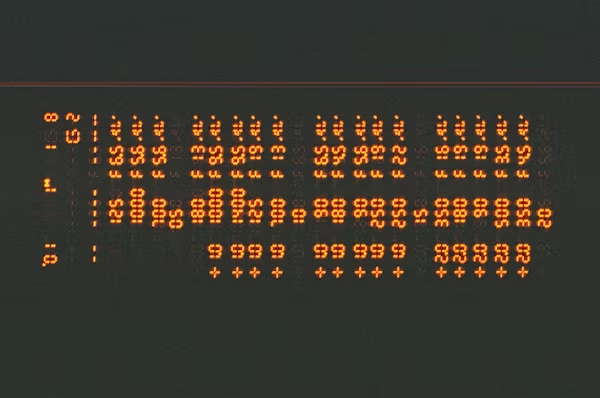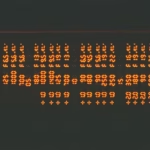In today’s digital age, IP addresses serve as the essential addresses of the internet, guiding data through the vast web of networks across the globe. They often appear as just a string of numbers to many, but each IP address carries unique information and a story. Among the countless addresses out there, one that has sparked curiosity is 185.63.253.2001. At first glance, it looks like a typical IP, yet it raises questions and invites investigation. Why does this particular sequence stand out? What is the truth behind it? This article aims to explore the world of IP addresses with a special focus on this mysterious number, shedding light on its nature and revealing why it has caught the attention of many.
What Is an IP Address and Why Does It Matter?
To understand the significance of 185.63.253.2001, we must first grasp what an IP address is. Simply put, an IP (Internet Protocol) address is like a digital home address for devices connected to the internet. It allows computers, servers, and other devices to identify and communicate with each other efficiently.
Every device that accesses the internet is assigned an IP address, which helps route information correctly. Without IP addresses, sending an email, loading a webpage, or streaming a video would be impossible because the internet wouldn’t know where to send the data.
Breaking Down the Format of IP Addresses
Typically, IP addresses come in two main versions: IPv4 and IPv6. IPv4 addresses are written as four groups of numbers separated by dots, each ranging from 0 to 255 (for example, 192.168.1.1). IPv6 addresses are longer, using hexadecimal and colons due to the exhaustion of IPv4 addresses.
Looking at 185.63.253.2001, the format appears to be unusual. The last segment “2001” exceeds the usual 0-255 range of IPv4 numbers, hinting that this might not be a standard IPv4 address. This irregularity is one of the reasons why this IP address attracts attention—it doesn’t quite fit the common mold.
Is 185.63.253.2001 a Valid IP Address?
At face value, 185.63.253.2001 looks like an IP address, but if we analyze the format carefully, it breaks the rules of IPv4 addressing. In IPv4, each block must be between 0 and 255. Since 2001 is greater than 255, this means it cannot be a valid IPv4 address.
On the other hand, IPv6 addresses allow larger numbers, but they use colons, not dots, to separate segments. Since this address uses dots, it does not conform to IPv6 standards either.
This suggests that 185.63.253.2001 is either a typographical error, a deliberately altered string, or a part of a different technical context, such as a custom identifier in a network or application.
Common Misunderstandings Surrounding IP Addresses
Many people confuse IP addresses with other network-related identifiers like domain names or port numbers. Sometimes, numbers that look like IP addresses might actually represent something else entirely.
For example, in networking, you can have IP addresses followed by port numbers, separated by a colon (e.g., 185.63.253.20:01). In this case, “01” could represent a port, but when written as dots, it becomes confusing.
The mystery of 185.63.253.2001 might stem from such a misunderstanding or a formatting error in documentation or communication.
The Significance of IP Addresses in Cybersecurity
Even though 185.63.253.2001 may not be a valid IP, IP addresses themselves are crucial in cybersecurity and internet operations. Tracking and analyzing IP addresses helps organizations identify threats, monitor unusual activities, and block malicious actors.
When an IP address behaves suspiciously or is flagged in security systems, it often draws attention, sparking investigations and alerts. This could be a reason why this particular sequence has been mentioned or noticed in some online or security contexts.
How IP Addresses Can Affect Internet Users
For everyday users, an IP address might seem invisible, but it influences many aspects of online life. For instance, websites use your IP to provide localized content or block access based on geographic restrictions.
Similarly, IP addresses help in filtering spam, managing network traffic, and securing online transactions. Any confusion or irregularity with an IP address, like the one in question, can affect these processes and cause technical challenges.
Exploring Potential Origins of 185.63.253.2001
Since 185.63.253.2001 isn’t a standard IP address, where could it come from? There are several possibilities:
It might be a typo or formatting mistake in network logs, documents, or communication.
It could represent an internal identifier within a company or software that is not related to internet IP addressing.
It might be a coded string or part of a larger technical concept misunderstood as an IP.
Without clear context, the true origin remains speculative, but these possibilities give a glimpse into the complexity behind such numeric strings.
Why Accuracy in IP Address Notation Matters
The confusion around 185.63.253.2001 highlights the importance of accurate notation in networking. Even a small mistake in an IP address can lead to miscommunication, failed connections, or security vulnerabilities.
Network administrators, developers, and users must ensure that IP addresses are correctly recorded and formatted to avoid issues ranging from minor inconveniences to major security breaches.
The Role of IP Addresses in Digital Forensics
In the realm of cybersecurity and digital forensics, IP addresses play a vital role in tracing the source of cyberattacks, fraudulent activity, or unauthorized access. Experts analyze IP logs to track down offenders or understand attack patterns.
If an unusual or invalid IP like 185.63.253.2001 appears in logs, it may raise red flags, signaling either an error or a potential attempt to mask identity or confuse tracking systems.
Could 185.63.253.2001 Be a Placeholder or Test String?
Sometimes, developers and testers use fake or placeholder IP-like numbers in their work to simulate network behavior or test systems without risking real IP addresses.
185.63.253.2001 could be one such string used in testing or documentation, designed to look like an IP but intentionally invalid to prevent accidental use on real networks.
What Can We Learn from This IP Address Mystery?
The story of 185.63.253.2001 teaches us that not all that looks like an IP address necessarily is one. It encourages a deeper understanding of internet protocols and the critical need for precision in technical details.
Moreover, it reminds us that the digital world has layers of complexity, and seemingly simple strings can hold deeper meanings or cause unexpected puzzles.
How to Verify and Investigate IP Addresses
If you come across a suspicious or unfamiliar IP address, there are tools and methods to verify its validity:
Use IP lookup services to check ownership and location.
Analyze the format to see if it follows IPv4 or IPv6 rules.
Consult networking professionals or documentation to understand its context.
Use cybersecurity tools to check if the IP is flagged or blacklisted.
Such steps help demystify unknown addresses and ensure safe internet practices.
The Future of IP Addressing
With the continuous growth of internet-connected devices, the importance of IP addresses only increases. IPv6 adoption is expanding to accommodate billions of new devices, offering a more complex but organized system.
Understanding IP address formats and their correct usage will remain vital for network efficiency and security. Meanwhile, unusual addresses like 185.63.253.2001 serve as reminders of the challenges and intricacies of digital communication.
Conclusion
The sequence 185.63.253.2001 may not be a valid IP address by traditional standards, but it presents a fascinating entry point into understanding IP addresses, internet protocols, and the nuances of digital communication. Whether it is a typo, a placeholder, or something else entirely, it sparks curiosity and invites us to explore how deeply our online world is structured.
By learning about IP addressing rules, the role of IPs in cybersecurity, and how errors can impact networks, we gain a clearer picture of the digital web that connects us all. The mystery of 185.63.253.2001 is less about the number itself and more about the broader story it tells about technology, precision, and the ever-evolving internet.
FAQs about 185.63.253.2001
Is 185.63.253.2001 a valid IP address?
No, it does not follow the standard IPv4 or IPv6 formats and is not considered a valid IP address.
Can I use 185.63.253.2001 to find a website or server?
No, since it’s not valid, it won’t lead to any website or server on the internet.
Why does the last segment of the address have a number larger than 255?
IPv4 addresses must have segments between 0-255; anything larger is invalid and indicates an error or different usage.
Could 185.63.253.2001 be a port number or something else?
It’s possible that it’s part of a combined IP and port notation, but the dots instead of colons make this unlikely.
What should I do if I encounter an invalid IP address like this?
Verify the address format, check with technical documentation, or consult networking experts for clarity.
Are invalid IP addresses dangerous?
Invalid IPs themselves aren’t dangerous but can cause connectivity issues or indicate misconfigurations that need correction.











